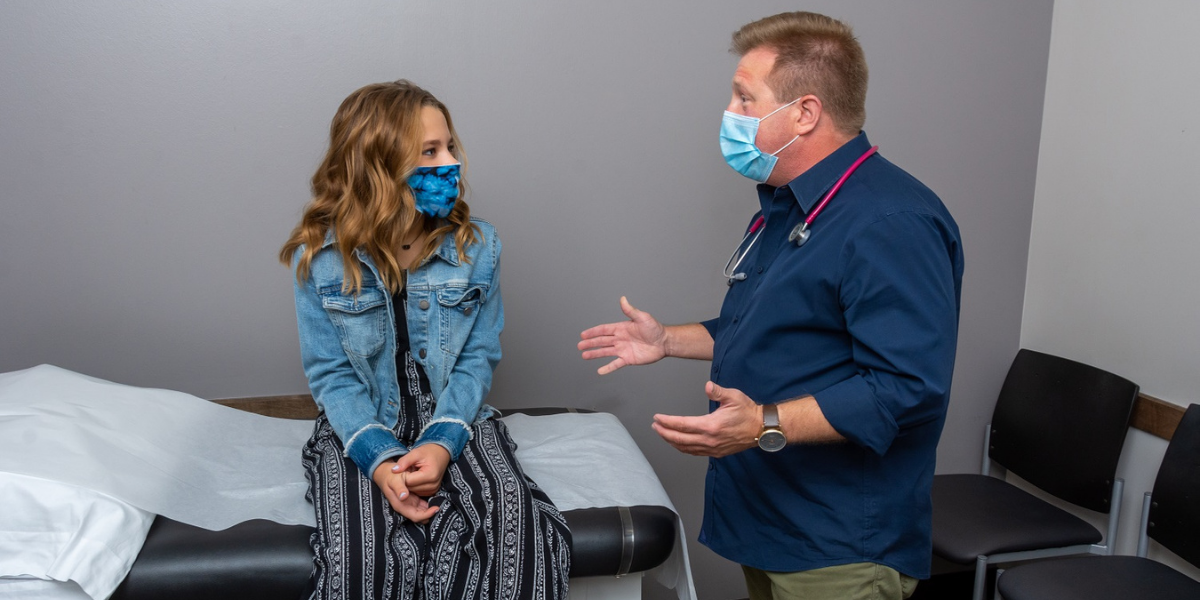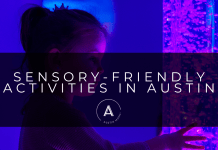We hear it every day in Austin Regional Clinic offices … the anxious voices of young children and teens, asking about family members, worried about school and friends.
We are Austin Regional Clinic understand the stress and pressure of a year of living with the constant worries of the COVID-19 pandemic have led to increased anxiety and depression in children and youth. If parents and caregivers can recognize the symptoms and intervene, we can help guide our children back to a future of hope, happiness, and positivity.
You probably hear the same questions in your home:
“Can I go back to school yet?”
“I miss Grandpa.”
“It is my senior year and no sports?”
“How long do I have to wear a mask?”
“When can I hug my friends again?”
“Everything I enjoy doing is cancelled or restricted.”
“I am lonely.”
“I have nothing to look forward to in the future.”
“I am scared.”
You’ve probably even felt the same way. These words exemplify the negative impact the COVID-19 pandemic has had and continues to have on the mental health of our children, leading to anxiety and depression. If you can recognize the symptoms, you can help your children find hope and joy as we move forward.
What to watch for :
If you notice the following symptoms in your child nearly every day, they are likely experiencing anxiety:
- Feeling nervous, anxious, or edgy
- Inability to stop/control worrying
- Worry too much about different things
- Trouble relaxing
- Restlessness
- Easily annoyed or irritable
- Feeling afraid as if something awful may happen

If you notice the following symptoms in your child nearly every day, they are likely experiencing depression:
- Little interest or pleasure in doing things they previously enjoyed doing
- Feeling down, depressed, and/or hopeless
- Trouble falling asleep, staying asleep, or sleeping too much
- Feeling tired or having little energy
- Poor appetite or over-eating
- Feeling bad about yourself
- Trouble concentrating
- Thoughts that the world would be better without them in it or thoughts of self-harm
How to help :
Here is a quick list from Austin Regional Clinic of simple things you can do with your child to help relieve their anxiety and start to overcome depression.
- Be positive, finding “silver linings” in life experiences shared during the pandemic. For example, remote learning helps high school students improve time management and organization that will benefit them in their freshman college year.
- Have open, honest, and transparent conversations about how your children are feeling. Validate that being scared and afraid are normal reactions in times of uncertainty. Teach them to not be fearful, but approach the challenges with a positivity, creativity, and flexibility approaching situations in a new and different way. Educating our children how to approach adversity in a manner where they look for opportunities and not just see barriers will set the stage in life for a future of success in whatever they pursue.
- Get outside in the sun. Not hard to do in Texas!
- Exercise – any kind. Dance, take the dog on a quick walk, play tag outside.
- Establish a healthy routine with a normalized sleep-wake cycle.
- Turn off the TV and the 24-hour news channels.
- Eat healthy and involve the children in meal planning and preparation.
- Give your children chores and responsibilities. Celebrate their successes!
- Schedule your child’s wellness exam with their pediatrician. Discuss symptoms of anxiety or depression that are present.
- Consider seeing a psychologist/therapist for cognitive behavioral therapy to learn self-management technique for anxiety and depression.
- If symptoms are significant or persistent, your child’s healthcare provider may recommend medication or referral to a pediatrician or psychiatrist specializing in child and adolescent mental health.
Austin Regional Clinic can help our children overcome the anxiety and depression they may have experienced or still be experiencing during the COVID-19 pandemic. Pay attention for symptoms, get involved, and talk to your child’s pediatrician for help and guidance.
James C. Anderson, IV, MD, practices Pediatrics at ARC Far West, 6835 Austin Center Blvd., Austin, Texas.
Natasha Bhagwandin Ahmed, MD, practices Pediatrics at ARC Sendero Springs, 1025 Sendero Springs Drive, Ste. 120 in Round Rock, Texas.
For appointments, visit www.arcbooknow.com.










